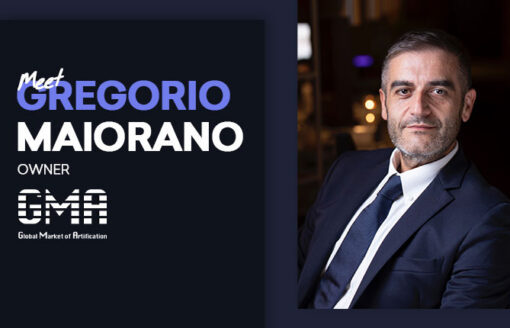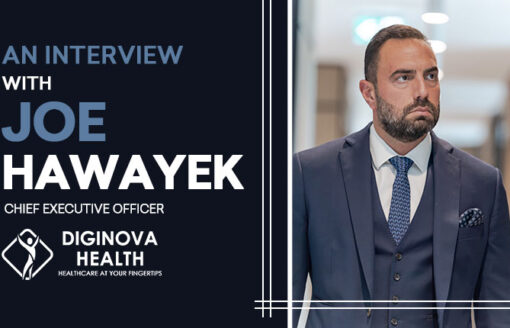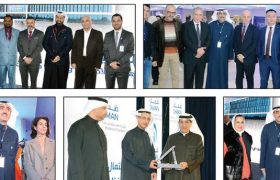About Denis Pashkov & His Company
The Arabia Times: Explain your background and your Company in detail?
Denis Pashkov: My background is bartending and bar management. I’ve got over 12 years of experience in that field. I used to work at the finest restaurants around the world, some of which were on the World’s 50 Best Restaurants list at the time. A year ago I decided to establish a company that would help bars and restaurants eliminate food waste and convert it into flavor-enhancing ingredients. My company is called “Cosmos Society” because creating ferments in a lot like creating a new universe. This is also the name of my brand of koji.
The Arabia Times: Your educational master classes sound intriguing. Can you walk us through some of the key concepts and techniques you teach to hospitality professionals during these sessions?
Denis Pashkov: Some of the most popular master classes and workshops are on kombucha brewing and miso making. Miso paste is a favor booster and is widely used in Japanese cuisine, but you can use miso essentially in any dish: it can replace your conventional salt, and it’ll impart not only salty taste, but also umami; you can even serve a chocolate ice cream with a pinch of miso on top. Why wouldn’t you learn how to make your own miso? You can even apply this Japanese technique to the ingredients traditional to your home country, for example you can ferment miso from French lentil, and that’s much easier than you think. You can also learn how to make your own kombucha and use it in cocktails, or event take it further and ferment your kombucha into kombucha vinegar – and cook with it. Imagine a salad with strawberry and basil kombucha vinegar dressing!
The Arabia Times: Give us one word that describes you the best.
Denis Pashkov: The best I can do is two words: “Fermentation revivalist”. Our ancestors used fermentation before the invention of electricity, sometimes instead of fire-cooking. It is one of the most ancient food-processing technologies. And one of the healthiest food-processing technologies. It helped our ancestors preserve food and survive in hostile environments.
The Arabia Times: Can you tell us more about your journey as a fermentation consultant and how you became involved in the field of eliminating food waste through fermentation?
Denis Pashkov: well, I guess it all began during the Covid-19 outbreak in 2020. Because of the curfew, the restaurant I worked at wasn’t open to public, and I spent the whole lockdown working in the kitchen. Even during my days at White Rabbit (ranked No.18 on the World’s 50 Best Restaurants 2016) I’d spend a lot of time working in a lab with the chefs, learning culinary techniques from the best. However, my fermentation journey began in 2020. I decided to use efficiently the time given us by the circumstances, so I started studying fermentation and sustainability. I had plenty of time to experiment, and I had very experienced chefs next to me. We’ve tried making amino-sauces from shrimp shells and other food waste with the help of koji, and it turned out to be delicious.
Knowledge about the company by Denis Pashkov
The Arabia Times: Could you explain what koji is?
Denis Pashkov: Koji is a mold traditionally grown on rice or barley, and it serves as a starter for fermented foods: it’s usually added to another product. This secondary fermentation process results in a complete transformation in flavor and texture. That is exactly how soybeans become miso, for example. In other words, koji is a powerhouse fermenter: it naturally contains large quantities of enzymes that convert starch and protein into sugars and amino acids. That is your key to creating umami boosters.
The Arabia Times: You mentioned working with Michelin-starred restaurants. How does your approach to zero waste and fermentation align with the high standards of such establishments?
Denis Pashkov: Zero waste and fermentation are the hottest trends in the culinary industry, and they are interrelated. Fermentation helps high-end restaurants eliminate food waste and create new flavors at the same time. You kill two birds with one stone, and moreover it reduces your costs. The same ingredient can deliver very different flavors if processed in different ways: it can be lacto-fermented, its flavor can be transformed with enzymes of koji, and you can make kombucha or vinegar with it, and use it in the dressing. It all will result in completely different flavors. Not to mention different parts of the same plant.
The Arabia Times: How do you stay up-to-date with the latest trends and innovations in fermentation and zero waste practices in the culinary world, and how do you incorporate these into your consulting services?
Denis Pashkov: I always work on growing my network in the culinary world, exchange experiences with chefs, read new books, and I have a paid subscription to several microbiology magazines. Learning more about microorganisms provides me with new ideas. After all, it’s not us who ferment something; we only manage bacteria that do the job.
The Arabia Times: Could you provide some examples of how you’ve helped restaurants transform kitchen scraps into delicious food products using fermentation techniques?
Denis Pashkov: Usually we help restaurants analyze their current menu, identify their wastage rate for each product, and based on that data we propose types of ferments that can be made from those scraps. For example, if the wastage rate isn’t high, we can opt for a type of fermentation that requires weeks. To one of our customers, we proposed making garums (amino-sauces) from various types of protein-rich kitchen scraps in collaboration with their patrons. Then those garums would be aged at the restaurant under close supervision of the fermentation specialist, and gifted to the patrons once ready. This also creates a deeper connection between the restaurant and the patrons.
Path & Challenges faced By Denis pashkov
The Arabia Times: What was the path you took to get to where you are today?
Denis Pashkov: It’s been an adventurous journey. When I resigned from my last full-time job as a bar manager, I started working in sales and developed my bar consultancy business along the way. Both helped me establish connection with the most acclaimed chefs of Dubai. We collaborated for beverage programs, for educational events, and for fermentation-driven circular zero waste programs.
The Arabia Times: What are some of the key challenges restaurants typically face when trying to implement circular zero waste programs, and how do you help them overcome these challenges?
Denis Pashkov: Most of the time, they think it’s time-consuming. Some restaurants are just not willing to try something new. They think “if it’s not broken, don’t fix it”. But unfortunately our planet needs fixing: the carbon footprint of conventionally run restaurants is terrifying. That is why my customers are mostly Michelin starred restaurants working with mainly local produce and keeping their footprint in check. Preparation time and cost in fact can only be improved by professionally designed zero waste program. The biggest challenge is to make this decision. To help restaurants overcome this challenge, I give them successful examples of sustainably run restaurants, calculate their wastage rate, the financial loss incurred by it, and show how implementing a circular zero waste program can improve their numbers in the P&L statement.
Qualities & collaborations by Denis Pashkov
The Arabia Times: In your experience, what are the most important qualities or skills that a successful fermentation consultant should possess, and how have you developed these qualities in your career?
Denis Pashkov: Self-discipline. Think of fermentation as managing the bacteria. We provide the right environment and favorable conditions – and the bacteria transform the substrate. You must be mindful of time, temperature, humidity, acidity, and many other factors. If you keep it consistent – you get consistent results. And for that, you need self-discipline.
Another important bit is keeping a track of everything you do: without recording data and processes, it’s harder to follow the same protocols in the future, and you probably won’t be able to achieve the same results or improve the results next time you do it. If you don’t measure it, you can’t control it – you are working blind. The only difference between screwing around and science is writing it down.
The Arabia Times: Collaboration with brands and bringing in experts from the World’s 50 Best Bars is exciting. Can you share an example of a successful collaboration and how it benefited the participants and the industry?
Denis Pashkov: Sometimes we collaborate with food and beverage brands and bring renowned bartenders from the World’s 50 Best Bars. We organize educational events for the bar community of the region, so they get familiar with modern trends in bartending, and perhaps get inspired to set new trends. We also have an initiative called Liquid Design Sport where we try new sports with the hospitality professionals, diverting them from spending their days off partying and doom-scrolling; for that non-profit initiative we are always open to collaborations with the brands promoting healthy lifestyle.
Advice from Denis pashkov
The Arabia Times: Would you like to say anything else to our viewers?
Denis Pashkov: Fermentation is easy! It is the oldest food-processing technology known to mankind, and we should not be afraid to use it.
Connect Denis Pashkov on Instagram




















































